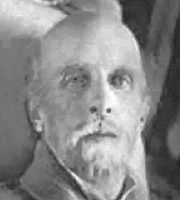by Eugene Lee-Hamilton
I
There are round lips that once obtained a draught
From the deep sapphire of the Fount of Youth;
Lips old, lips young, whose smile attests the truth
Of that great dream at which the wise have laughed;
And there are brows, which still, by magic craft,
Defy the years that know nor rest nor ruth,
And which remain, in spite of Time's sharp tooth,
As radiant as the wondrous waters quaffed.
But not of living flesh and blood are they;
And Art alone can give their long youth birth,
And bid them keep it while mere men grow grey.
Art makes the only ever-young on earth;
Shapes which can keep, till crumbled quite away,
A young saint's rapture or a young faun's mirth.
II
What impious wrinkle ever marred the cheek
Of that proud beauty, armless from of old,
Who stands, though twenty centuries are scroll'd,
Young as when first she smiled upon the Greek?
What thread of silver ever dared to streak
The wavy wonder of the wanton gold
Round Titian's Magdalen, while men behold
Each other whiten, as their lives grow bleak?
And those more breathing beings that the pen
Creates of subtler substance than the brush
Or chisel ever dealt with, — what of them?
Are Juliet's eyes less bright in those of men,
Her cheek less oval; and will ages crush
The youth from out Pompilia's frail cut stem?
III
And yet Art's wonders are at last Death's prize;
The shattered marble crumbles into lime;
Canvas and fresco perish into grime;
The pen's great shapes will die when language dies.
The Milo stone will go where lime's dust flies,
And Titian's Magdalen grow black with time;
Juliet will end with England's tongue and rhyme,
Pompilia too, that other shapes may rise.
But not a wrinkle will o'ercreep their brow,
Nor thread of silver mar the locks we love,
However oft a century's knell has rung;
And when they die they will be fair as now;
For they are cherished by the gods above;
And those the gods are fond of, perish young.
Last updated November 02, 2017




